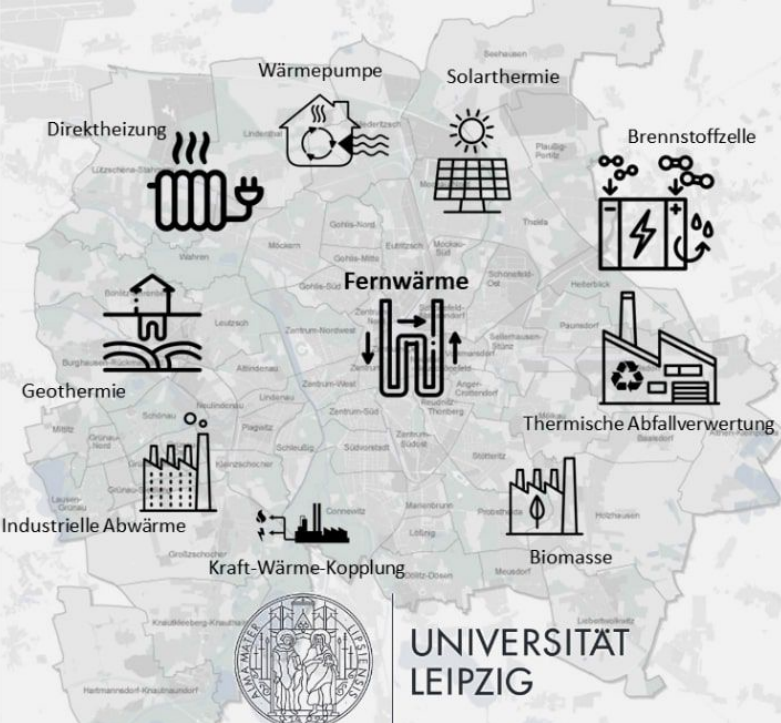New municipal heating planning in Leipzig goes ahead
The Leipzig city council goes ahead with plans for a municipal heating plan for Leipzig., as part of the Energy and Climate Protection Program (EKSP). Leipziger Stadtwerke (LSW) and Leipziger Wohn- und Baugesellschaft (LWB) taking on the concrete execution of the municipal heating plan by the end of 2023 with the aim to achieve a climate-neutral heat supply for the city by 2038.
The SPARCS (Sustainable energy Positive & zero cARbon CommunitieS) project has been working on Leipzig’s municipal heating plan since 2019, focusing on the city’s existing district heating system. District heating covers almost 30% of Leipzig’s final energy demand. In addition, additional neighbourhoods will be connected to the district heating system.
Within the framework of SPARCS, the Institute for Infrastructure and Resource Management (IIRM) at the University of Leipzig has developed a project approach to support Leipzig’s municipal utilities with scientific methods. The results regarding a sustainable, cost-effective and secure supply of district heating for end customers can serve as a decision-making aid in the preparation of a concrete heating plan for the period up to 2038.
For this purpose, SPARCS provides an exchange platform for technical and scientific partners in the participating European cities, thereby advancing the energy transition.
Based on the target vision of climate-neutral district heating, LSW initiated an agile process to provide the opportunity for regular exchange. This includes the exchange of techno-economic data, the discussion of technical contexts and the reflection of interim results. Specialists from LSW are called in on various topics as needed to ensure an efficient transfer of knowledge. The data is transferred to the IRPopt (Integrated Resource Planning and Optimization) energy system model developed at IIRM. Different fuel prices and variations in future heat demand are also taken into account. A specially designed Excel-based analysis structure is used to evaluate the results. This combination allows an economic and technical evaluation of the different portfolios in terms of costs and security of supply for end customers of the district heating system and producers (LSW).
In concrete terms, various scenarios were developed for the future heat supply with district heating. To this end, supply variants were initially created that are based on premises that are as diverse as possible. The variants differ significantly in the respective permitted generation technologies, and energy sources used and are characterized as follows:
- Availability of hydrogen via international or local markets (depending on the respective market situation),
- Diversified use of biomass, industrial waste heat and solar thermal energy,
- Electrification of heat supply, and
- Availability of competitively priced natural gas with post-combustion carbon capture and storage (CCS).
In addition, combinations of the four basic options are examined. Due to the high uncertainty regarding future energy prices, such analyses are particularly valuable.
For decision-makers, it becomes clear which energy sources and generation technologies lead to certain total costs under different assumptions. The studies show that diversification of the portfolios by considering different generation technologies and fuels increases the robustness against price fluctuations of fuels. Furthermore, an expansion of the district heating system by additionally connected neighbourhoods and a related increase of the district heating demand, in combination with almost constant cost, leads to a stabilization of the specific costs per end customer.

